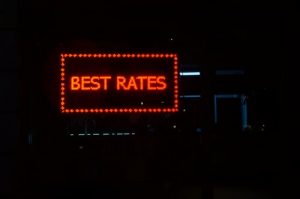If your home is worth more than your mortgage balance, you have equity. If you’re lucky or smart to find yourself in this situation, here’s how you can convert that equity into purchasing power.
Ways to unlock your home
The two most common ways to gain access to the equity in your home are through a home equity loan or home equity line of credit. The loans offer a lump sum at a fixed rate of interest which is repaid over a period of time. A HELOC is a revolving line of credit that you can draw, repay, and withdraw for a specified period, typically a decade. It often starts with an adjustable-rate, followed by a fixed rate.
A third option is paid refinancing, where you refinance your existing mortgage into a loan for more than what you owe and keep the difference in cash.
Home equity loan terms vary depending on the lender. However, these standards are typical:
- The equity in your home of at least 15% to 20% of its value, which is determined by an appraisal
- Debt-to-income ratio of 43% or possibly up to 50%
- Credit score of 620 or higher
- Strong history of paying bills on time
- Your debt to income ratio
To assess your mortgage loan application, lenders calculate your debt-to-equity ratio to determine if you can afford to borrow more than your existing obligations.
To find this number, add up all of your monthly debt and other financial obligations, including mortgages, loans and leases, and child support, divide it by your monthly income, and then convert this number to a percentage. For example, if you earn $3,000 per month and make payments totaling $ 1,200, your DTI is 40%.
What Debt-to-Income Ratio Do Lenders Need? For a fixed-rate term home loan, federal regulations set the limit at 43% DTI.
With HELOC, lenders have more discretion, which means you can look around if your DTI is higher. Comerica offers home equity lines of credit with DTIs of up to 50%, says Winston McEwen, deputy director of Comerica Bank’s banking center in Cupertino, Calif. According to its website, Chase has set a debt income limit of 43% for HELOC.
This set of standards requires consumers to exercise their best judgment. Even if you qualify, carefully consider the amount of debt you owe. When you take out a home loan, you risk your home as collateral, which means the bank could keep the home if you fail to repay your loan on time.
Role of credit scores
Lending strategies vary. “What one lender considers a ‘good score’ may not be viewed as a great score by another,” said Ethan Dornhelm, FICO vice president of valuation and analysis. In Comerica, for example, the minimum FICO for home equity loans is 680, McEwen says.
Refinancing of ashes
A less popular option for accessing home equity is to refinance yourself with a new mortgage and then extract some of the equity in cash. Your refinance rate depends on the current mortgage rate. Zimmerman said the borrowers he works with avoid this type of refinancing because they will end up paying a higher interest rate than they are currently paying.



